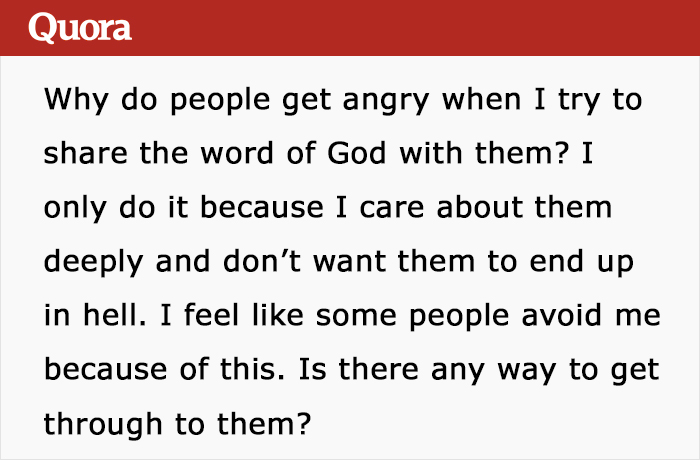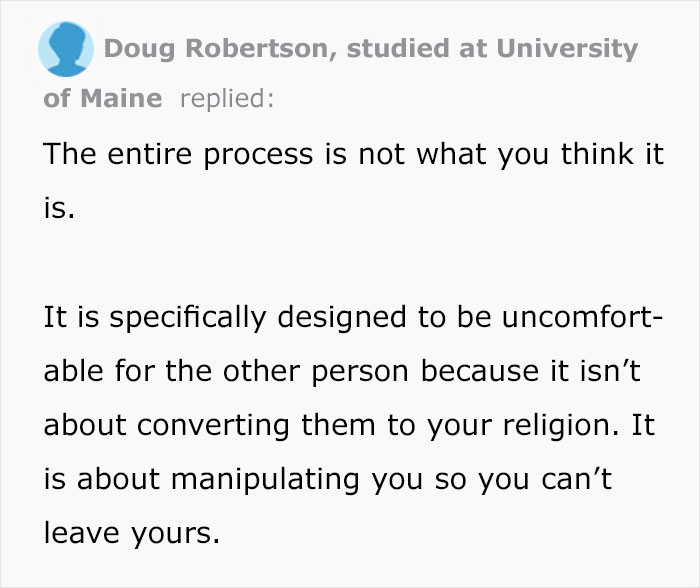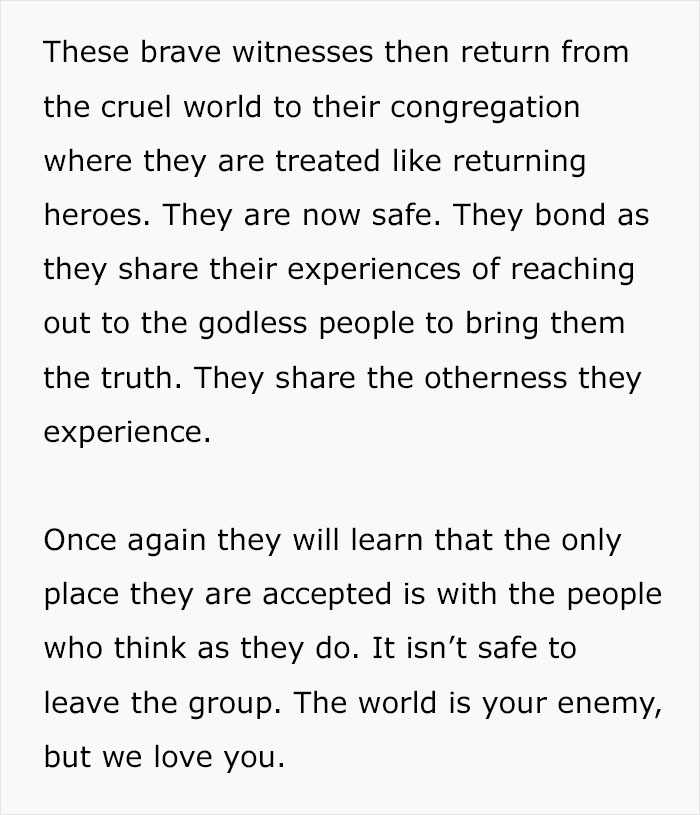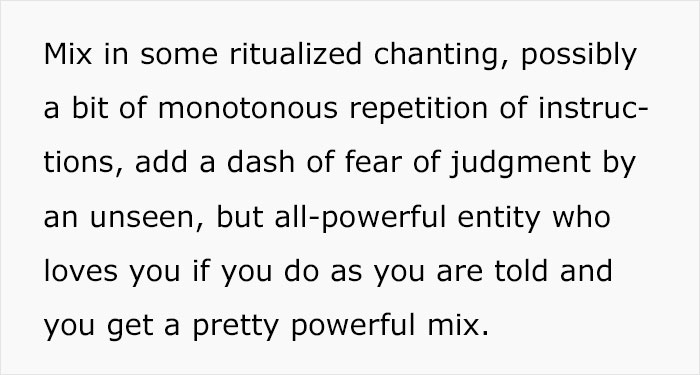Fr. Silouan Benedict
The emphasis on the Word of God is of the Highest
Order in the Orthodox Church. Whether it is the
Matins, or the Vespers, or the prayer of the hours,
the Divine Liturgy etc, the entire Liturgical Cycle of
the Church is completely based on the Word of God. We
actually consume the very Word of God in the Holy
Mysteries during the Divine liturgy.
At every Liturgy, the Priest prepares the sermon first
by reading the writings of the Holy Fathers. He prays
long before the Liturgy as well, and also learns to
practically apply the sermon. This is the sermon I am
used to preaching. In Essence, there will be no
effective sermon without understanding what the Holy
Fathers meant about the passage that is explained. Not
using the Holy Fathers when understanding Holy
Scriptures is like saying, “I know
everything,” and there is nothing more dangerous
to your soul than that kind of an attitude.
The Word of God is expected to be lived and we all
ought to put on Holy Scriptures like we put on Clothes
for different occasions, so should we put on the word
of God into our hearts on all different occasions. St.
John Chrysostom Says that, “The Holy Scriptures
were not given to us that we should enclose them in
books, but that we should engrave them upon our
hearts.”
Read the word of God in synergy with prayer. I mean to
say that you should combine reading the word of God
like prayer. I always tell people, “Learn from
the crow!” The crow puts its beak into water,
takes a little water, lifts its beak up and then looks
to the sky and swallows the water. In the same way,
read a little, think a little and then pray a little.
The Epistle of Hebrews 4:12 tells us For the word
of God is living and active, sharper than any
two-edged sword, piercing to the division of soul and
of spirit, of joints and of marrow, and discerning the
thoughts and intentions of the heart. When you
combine the Word of God with prayer, it is even more
powerful, because you are acting on the word of God,
and not just reading it. You must ponder on the Word
of God. You must listen attentively with all your
senses. Listen to what St. John Chrysostom says on
what Prayer does to us: “The potency of prayer
hath subdued the strength of fire; it hath bridled the
rage of lions, hushed anarchy to rest, extinguished
wars, appeased the elements, expelled demons, burst
the chains of death, expanded the gates of heaven,
assuaged diseases, repelled frauds, rescued cities
from destruction, stayed the sun in its course, and
arrested the progress of the thunderbolt.”
I have also noticed that one can actively read the
word of God with all our senses, especially the
singing or chanting of Psalms, which are pearls of
wisdom, spiritual diamonds; and when you chant them,
use the Sign of the Cross and anoint yourselves as
often as you can—especially when you say
“Lord,” and in this you will notice that
even your body is praying. Do it from your heart, not
just outwardly.
Point everything in the word of God to yourself. What
I intend to say is: Do not judge your brother or
sister through the word of God that is read or spoken,
rather point the word of God to yourself. The only
person who needs to change is I, Me, and Myself. Let
the Word of God sink into you so that you think about
how to change yourself. Only then will you bear fruit.
The Word of God acts gently within your soul. God
transforms us through his word, so it is very
necessary to allow the Word of God to sink into you.
And the right interpretation of the Word of God has to
sink within you, not the word of God spoken by
heretics and schismatics. The Orthodox Church helps
you to know the Truth, the Whole Truth and Nothing but
the Truth. That is why the Orthodox way of knowing
Holy Scriptures are important.
Next, the revelation of the Word of God to us is the
work of the Holy Spirit. The Lord tells us in John
16:13-15: When the Spirit of truth comes, he will
guide you into all the truth; for he will not speak on
his own, but will speak whatever he hears, and he will
declare to you the things that are to come. He will
glorify me, because he will take what is mine and
declare it to you. All that the Father has is mine.
For this reason I said that he will take what is mine
and declare it to you”. St. Ambrose of
Milan says, “(The Holy Spirit) speaks the truth,
He breathes wisdom. He does not speak without the
Father, for He is the Spirit of God. He does not hear
from Himself, for all things are of
God…Therefore what the Spirit says is the
Son’s, what the Son has given is the
Father’s. So neither the Son nor the Spirit
speaks anything of Himself.” It is necessary for
us to understand that we cannot believe in our own
private interpretation. The Word of God is the Book of
the Orthodox Church. Without the Orthodox Church,
there is no right understanding and right experience
of the Word of God. What the Word of God means, what
it intends to say, what is the background and right
context is ONLY revealed in the Orthodox Church. There
is no other way. The fullness of Christ can only be
experienced in the Orthodox Church.
Last but not the least: Without Holy Tradition, your
understanding of Holy Scriptures is never complete.
Fr. Georges Florovsky expresses this idea:
“Tradition is the witness of the Spirit; the
Spirit’s unceasing revelation and preaching of
good things… To accept and understand Tradition
we must live within the Church, we must be conscious
of the grace-giving presence of the Lord in it; we
must feel the breath of the Holy [Spirit] in
it…. Tradition is not only a protective,
conservative principle; it is, primarily, the
principle of growth and regeneration….
Tradition is the constant abiding of the Spirit and
not only the memory of words” (Sobornost:
the Catholicity of the Church, in the Church of
God, pp. 64-5). To an Orthodox Christian,
Tradition means the Holy Bible; it means the Creed; it
means the decrees of the Ecumenical Councils and the
writings of the Fathers; it means the Canons, the
Service Books, the Holy Icons, etc. In essence, it
means the whole system of doctrine, ecclesiastical
government, worship and art that Orthodoxy has
articulated over the ages (Timothy Ware, The
Orthodox Church, p.204). This is the Beauty of
Orthodoxy!
To all people who believe in private interpretation of
Holy Scripture: You are treading a dangerous path, you are
walking on a path that will lead to confusion/darkness of
the mind. None of us can dare to say that we know Christ
more than His Holy Mother, the Theotokos; none of us can
also say that we know Christ more than his Holy Apostles,
none of us similarly can also evidence that we know Christ
more than those who followed him closely, i.e., the Holy
Fathers/ Saints of the Church. If you ignore the
instruction of the Mother of God, if you ignore the
instruction of the Holy Apostles and if you ignore the
instructions of the Holy Fathers, you are going nowhere,
you are only going down the path of confusion/darkness of
the mind. If your excuse is that where you live, there is
no Orthodox Church, you can first learn to walk the path
that leads you to Orthodoxy, then become Orthodox, and God
will help you to establish the True Faith. There is no
excuse in 2015 that anyone in the world can have to not
know the Orthodox Faith. But if you have not heard about
the Orthodox Faith, then it is possibly not your fault.
But if you have read this article you have heard about it,
it is time for you to dig and understand. This is the only
Church that Christ established. I am encouraging you in
love: Let not your excuse be your unwillingness to walk
towards the Truth. If God is your number one priority then
you must take the effort to discover Orthodoxy. Do not
seek entertainment in Church, do not be lazy in your heart
towards knowing and experiencing the truth, do not be
hardhearted and hard-headed, do not be cold towards God.
You are the best judges of yourselves. I have enclosed a
link for your further reading and may God help you
all.
I will end with the words of the Elder Leonid of Optina.
“If you would be simple-hearted like the Apostles,
would not conceal your human shortcomings, would not
pretend to be especially pious, if you would walk free
from hypocrisy, then that is the path. While it is easy,
not everyone can find it or understand it. This path is
the shortest way to salvation and attracts the grace of
God. Unpretentiousness, guilelessness, frankness of
soul—this is what is pleasing to the Lord, Who is
lowly of heart. Except ye become like children, ye shall
not enter into the Kingdom of God (Mt. 18:13).”
Romans 15:4
ESV / 103 helpful votes
For whatever was written in former days was written for our instruction, that through endurance and through the encouragement of the Scriptures we might have hope.
2 Timothy 3:16
ESV / 99 helpful votes
All Scripture is breathed out by God and profitable for teaching, for reproof, for correction, and for training in righteousness,
Hebrews 4:12
ESV / 96 helpful votes
For the word of God is living and active, sharper than any two-edged sword, piercing to the division of soul and of spirit, of joints and of marrow, and discerning the thoughts and intentions of the heart.
Mark 13:31
ESV / 75 helpful votes
Heaven and earth will pass away, but my words will not pass away.
John 1:1
ESV / 64 helpful votes
In the beginning was the Word, and the Word was with God, and the Word was God.
Psalm 119:105
ESV / 63 helpful votes
Your word is a lamp to my feet and a light to my path.
Psalm 119:11
ESV / 56 helpful votes
I have stored up your word in my heart, that I might not sin against you.
Joshua 1:8
ESV / 52 helpful votes
This Book of the Law shall not depart from your mouth, but you shall meditate on it day and night, so that you may be careful to do according to all that is written in it. For then you will make your way prosperous, and then you will have good success.
Psalm 119:18
ESV / 43 helpful votes
Open my eyes, that I may behold wondrous things out of your law.
1 Peter 2:2
ESV / 40 helpful votes
Like newborn infants, long for the pure spiritual milk, that by it you may grow up into salvation—
2 Timothy 2:15
ESV / 40 helpful votes
Do your best to present yourself to God as one approved, a worker who has no need to be ashamed, rightly handling the word of truth.
1 John 4:1
ESV / 36 helpful votes
Beloved, do not believe every spirit, but test the spirits to see whether they are from God, for many false prophets have gone out into the world.
Psalm 119:130
ESV / 33 helpful votes
The unfolding of your words gives light; it imparts understanding to the simple.
Psalm 1:1-3
ESV / 32 helpful votes
Blessed is the man who walks not in the counsel of the wicked, nor stands in the way of sinners, nor sits in the seat of scoffers; but his delight is in the law of the Lord, and on his law he meditates day and night. He is like a tree planted by streams of water that yields its fruit in its season, and its leaf does not wither. In all that he does, he prospers.
Proverbs 30:5
ESV / 31 helpful votes
Every word of God proves true; he is a shield to those who take refuge in him.
Psalm 1:1-6
ESV / 23 helpful votes
Blessed is the man who walks not in the counsel of the wicked, nor stands in the way of sinners, nor sits in the seat of scoffers; but his delight is in the law of the Lord, and on his law he meditates day and night. He is like a tree planted by streams of water that yields its fruit in its season, and its leaf does not wither. In all that he does, he prospers. The wicked are not so, but are like chaff that the wind drives away. Therefore the wicked will not stand in the judgment, nor sinners in the congregation of the righteous; …
Romans 10:17
ESV / 18 helpful votes
So faith comes from hearing, and hearing through the word of Christ.
Revelation 19:11-13
ESV / 17 helpful votes
Then I saw heaven opened, and behold, a white horse! The one sitting on it is called Faithful and True, and in righteousness he judges and makes war. His eyes are like a flame of fire, and on his head are many diadems, and he has a name written that no one knows but himself. He is clothed in a robe dipped in blood, and the name by which he is called is The Word of God.
Job 23:12
ESV / 17 helpful votes
I have not departed from the commandment of his lips; I have treasured the words of his mouth more than my portion of food.
2 Timothy 4:2
ESV / 16 helpful votes
Preach the word; be ready in season and out of season; reprove, rebuke, and exhort, with complete patience and teaching.
John 8:32
ESV / 15 helpful votes
And you will know the truth, and the truth will set you free.”
Revelation 1:3
ESV / 14 helpful votes
Blessed is the one who reads aloud the words of this prophecy, and blessed are those who hear, and who keep what is written in it, for the time is near.
John 8:31
ESV / 12 helpful votes
So Jesus said to the Jews who had believed him, “If you abide in my word, you are truly my disciples,
Isaiah 40:8
ESV / 10 helpful votes
The grass withers, the flower fades, but the word of our God will stand forever.
Psalm 107:20
ESV / 10 helpful votes
He sent out his word and healed them, and delivered them from their destruction.
1 Timothy 4:13
ESV / 9 helpful votes
Until I come, devote yourself to the public reading of Scripture, to exhortation, to teaching.
Psalm 19:7-12
ESV / 9 helpful votes
The law of the Lord is perfect, reviving the soul; the testimony of the Lord is sure, making wise the simple; the precepts of the Lord are right, rejoicing the heart; the commandment of the Lord is pure, enlightening the eyes; the fear of the Lord is clean, enduring forever; the rules of the Lord are true, and righteous altogether. More to be desired are they than gold, even much fine gold; sweeter also than honey and drippings of the honeycomb. Moreover, by them is your servant warned; in keeping them there is great reward. …
Acts 20:32
ESV / 8 helpful votes
And now I commend you to God and to the word of his grace, which is able to build you up and to give you the inheritance among all those who are sanctified.
John 20:31
ESV / 8 helpful votes
But these are written so that you may believe that Jesus is the Christ, the Son of God, and that by believing you may have life in his name.
Deuteronomy 6:6-8
ESV / 7 helpful votes
And these words that I command you today shall be on your heart. You shall teach them diligently to your children, and shall talk of them when you sit in your house, and when you walk by the way, and when you lie down, and when you rise. You shall bind them as a sign on your hand, and they shall be as frontlets between your eyes.
Mark 1:14
ESV / 6 helpful votes
Now after John was arrested, Jesus came into Galilee, proclaiming the gospel of God,
Job 2:1-13
ESV / 5 helpful votes
Again there was a day when the sons of God came to present themselves before the Lord, and Satan also came among them to present himself before the Lord. And the Lord said to Satan, “From where have you come?” Satan answered the Lord and said, “From going to and fro on the earth, and from walking up and down on it.” And the Lord said to Satan, “Have you considered my servant Job, that there is none like him on the earth, a blameless and upright man, who fears God and turns away from evil? He still holds fast his integrity, although you incited me against him to destroy him without reason.” Then Satan answered the Lord and said, “Skin for skin! All that a man has he will give for his life. But stretch out your hand and touch his bone and his flesh, and he will curse you to your face.” …
Romans 8:28
ESV / 4 helpful votes
And we know that for those who love God all things work together for good, for those who are called according to his purpose.
Acts 20:27
ESV / 4 helpful votes
For I did not shrink from declaring to you the whole counsel of God.
John 20:10-18
ESV / 4 helpful votes
Then the disciples went back to their homes. But Mary stood weeping outside the tomb, and as she wept she stooped to look into the tomb. And she saw two angels in white, sitting where the body of Jesus had lain, one at the head and one at the feet. They said to her, “Woman, why are you weeping?” She said to them, “They have taken away my Lord, and I do not know where they have laid him.” Having said this, she turned around and saw Jesus standing, but she did not know that it was Jesus. …
John 3:16
ESV / 4 helpful votes
“For God so loved the world, that he gave his only Son, that whoever believes in him should not perish but have eternal life.
Psalm 119:98-100
ESV / 4 helpful votes
Your commandment makes me wiser than my enemies, for it is ever with me. I have more understanding than all my teachers, for your testimonies are my meditation. I understand more than the aged, for I keep your precepts.
Psalm 37:1
ESV / 2 helpful votes
Of David. Fret not yourself because of evildoers; be not envious of wrongdoers!
Not every country has the freedom of absolute free speech – but in countries where they do, one of the messages often spread is that of religion. People can convene, go door to door or spread flyers in an attempt to inform others about their religious beliefs and even persuade them into joining – however, the word of God is not always appreciated.
A lot of people get annoyed or even downright angry when they are disturbed by these religious groups recruiters and have no issue making it known to them. Looking for another way to get people to listen, someone on Quora asked the internet how they could get their religious message through to people without upsetting them – and got the perfect response.
Nothing was left out of this explanation – the brainwashing techniques used to employ recruiters, the thorough indoctrination and even mind control of the religious cults. Scroll down below to read the story for yourself.
Someone on Quora asked the internet how to spread their religious message without people getting angry
Image credits: Steelman (not the actual photo)
And one person had this perfect explanation
Many people agreed with the comment and found it very insightful
Sunday, Jan. 24 marks “The Sunday of the Word of God,” instituted by Pope Francis last year and to be held every year on the third Sunday of Ordinary Time. This may strike us as odd, as we might think to ourselves, “but isn’t the Bible read at every Sunday Mass?” Certainly so. Not only that, but every daily celebration of the Mass proclaims the Word of God.
What’s different about “The Sunday of the Word of God,” however, is that it’s not just about hearing the Bible read on Sundays. As the Congregation for the Doctrine of the Faith notes, it “reminds us, pastors and faithful alike, of the importance and value of Sacred Scripture for the Christian life, as well as the relationship between the word of God and the liturgy: ‘As Christians, we are one people, making our pilgrim way through history, sustained by the Lord, present in our midst, who speaks to us and nourishes us. A day devoted to the Bible should not be seen as a yearly event but rather a year-long event, for we urgently need to grow in our knowledge and love of the Scriptures and of the Risen Lord, who continues to speak his word and to break bread in the community of believers. For this reason, we need to develop a closer relationship with Sacred Scripture; otherwise, our hearts will remain cold and our eyes shut, inflicted as we are by so many forms of blindness.’” This gives us a wonderful opportunity to pause and reflect on the Sacred Scriptures.
There are two means by which God Divinely reveals truths to us: Sacred Scripture and Sacred Tradition. As such, the Bible is not merely a human document, nor simply a collection of amazing stories that call us to do heroic things, or a collection of wise sayings. Rather, the Scriptures are “inspired.” St. Paul has a beautiful teaching about this in 2 Timothy 3:16-17 – “All scripture, inspired of God, is profitable to teach, to reprove, to correct, to instruct in justice, That the man of God may be perfect, furnished to every good work.” By “inspired” we mean that God is the principle author of the Bible.
Certainly there were different men who physically wrote the words on the papyrus. Yet these men were influenced by the grace of inspiration to write, not just their own words, but God’s. And so the Scriptures are a mysterious congruence of Divine and human authorship – the human writers capably made full use of language, literary forms, creativity, and writing style to communicate their message, yet they did so under the grace of Divine inspiration. This means that while they wrote in such a way that they had full freedom to write as they wanted, what they wrote was also, “to a tee,” exactly as God wanted written. God is the principle author of the Bible, the human author its secondary writer. Such inspiration is how, despite the various human authors, events, and historical and cultural contexts behind the 73 Biblical texts, we’re still left with only one story since they all have the same one primary author.
Given that the Bible is the written word of God, I’d like to offer a few “tips” for reading the Bible, since it certainly cannot be read like any other text.
1. Pray! We must pray before opening the Scriptures for enlightenment from God. We must pray after reading in thanksgiving to God. And we must pray throughout reading in order to encounter God in Scripture and apply it to our life. Of course, the tried and trusted practice of praying the Scriptures is Lectio Divina. The Ladder of Monks by Guigo II is the ancient resource for Lectio Divina, while a helpful book to get you started is Dr. Tim Gray’s Praying Scripture for a Change: An Introduction to Lectio Divina.
2. Remember that you are in no rush. The important point is encountering Christ in the Scriptures, not racing through them. Speed reading isn’t reading, after all, much less when applied to the Word of God. It’s not about getting through the Bible, but encountering Christ therein. That may be a few chapters at a time or may actually be only one verse that you pray with. Whatever the case, slow and steady wins the race, as Aesop reminds us.
3. We have to read the Scriptures regularly, daily if possible. We read in Psalm 1, “Blessed is the man who walks not in the counsel of the wicked, nor stands in the way of sinners, nor sits in the seat of scoffers; but his delight is in the law of the Lord, and on his law he meditates day and night.” Meditating day and night. A good way to start would be to read one Psalm a night as a part of your nightly prayer. Ever better would be praying that one Psalm with your spouse, if married.
4. Do not worry about starting on page one and reading from cover to cover. It’s easy to get overwhelmed and lost in the text. We all know about Adam and Eve, Noah and the Flood, Moses and the Plagues. But how many understand animal sacrifices in the Book of Leviticus or its purity laws? It’s very easy, starting from page one and flipping straight through, to lose sight of the story of salvation history. Start from page one if you’d like, but don’t feel like you can’t start with whatever book (especially the Gospels) that you find yourself drawn to.
5. Come take classes with the Denver Catholic Biblical School! In chapter eight of the Book of Acts, we read of an Ethiopian Eunuch reading from the Prophet Isaiah. When the Deacon Philip asks him if he understands what he’s reading, the Eunuch responds, “How can I, unless some one guides me?” This is what we at the Biblical School are here for – to guide you in your encounter with Christ in the Sacred Scriptures. We’re in the middle of our Scripture classes already for this year, but we always start new classes in the fall every September. And in the meantime, we have plenty of things still coming for this year – a class on Catholic Social Teaching that begins on Jan. 27 a lecture series for Lent that starts on March 1, a conference on the Sacred Heart being offered on May 15 and Aug. 28, and a six-week class on St. Joseph in the summer starting in July. We have something for everybody – just reach out to us!
Daniel Campbell
Daniel Campbell is the Director of the Lay Division at St. John Vianney Theological Seminary.
How can reading the Word of God draw you closer to God?
Reading the Bible
Reading the Bible seemed like a simple task at first, but I soon realized that I needed some help in explaining certain passages. Some verses seemed so daunting. There are so many verses to write on our hearts and truths to be revealed that it’s hard to know where to begin, but the Bible is unlike any other book. It’s a book that can be read over and over again, and each time, new understanding comes, and the former passages that were difficult eventually became easier to understand, although many will always remain difficult. I don’t normally read a book twice, but the Bible is not just a book. It is the very breath of God, so here are some ways you can draw closer to God by reading the Word of God and other applications.
Meditating on the Word
Our church elder said that meditating on the Word of God is a lost art, and he’s absolutely right. Its one thing to read the Word of God, but it’s an altogether different thing to sit and contemplate what we read. I would rather read only a few lines of Scripture and mediate on these than read a whole chapter and then not remember most of it. When we take time to reflect, ponder, and mediate on His Word, the Word penetrates deep into our mind and this allows us to internalize it and memorize it. We lose out on so much when we simply read the Bible but don’t slow down to meditate on it. The Psalmist says we are to hide or memorize God’s Word in order that we might not sin (Psalm 119:11), and you can’t do that by skimming over chapters. There is such power in His Word (Isaiah 55:11; Rom 1:16; 1 Cor 1:18) but we often don’t tap that power when we read right past it. The Scriptures tell us to meditate on His Word, both day and night, but you can never meditate on the Word of God if you’re not reading the Word of God. The Lord told Joshua, “This Book of the Law shall not depart from your mouth, but you shall meditate on it day and night, so that you may be careful to do according to all that is written in it. For then you will make your way prosperous, and then you will have good success” (Joshua 1:8). The psalmist wrote, “Oh how I love your law! It is my meditation all the day” (Psalm 119:97), and that’s because His commandments make us wiser and give us more understanding (Psalm 119:98-100).
Context is King
Tapping into the power of Scripture takes practice and patience, but daily reading of the Word also helps us not take texts out of context, and this helps us avoid pretexts, so how do we avoid taking texts out of context? It’s so easy to rip one verse out of context and create a pretext, but often it’s a false one, and of course, we don’t want that. That’s how cults are formed. We need to read the verse within the whole context of the chapter, and even within the context of the book. Taking texts out of context are how heated arguments begin, but this is typically pride-induced. Someone takes one text to prove that they’re right and the other person’s wrong, but what happens is Christians wield the Word of God like a sword and use it against other in a way it was never intended.
Personalize the Bible
How can you personalize the Bible? You can do this by putting “you” or your name in a certain verse. Of course, it doesn’t work with every verse, but when the Lord s addressing believers, it works very well. Here’s an example: John 3:16 can read, “For God so loved the (Sarah/Gary/you) that he gave his only Son, that whoever believes in him should not perish but have eternal life,” or Colossians 1:21-22 works well by adding personal names: “And you Sarah/Donnie, who once were alienated and hostile in mind, doing evil deeds, he has now reconciled in his body of flesh by his death, in order to present you holy and blameless and above reproach before him.” Even on its own, the Word of God is quite personalized as we read in Colossians 2:6-7 where the Apostle Paul writes, “Therefore, as you received Christ Jesus the Lord, so walk in him, rooted and built up in him and established in the faith, just as you were taught, abounding in thanksgiving.”
Prescriptive vs Descriptive
All Scripture is written for believers but not all Scripture is written to believers as far as application is concerned. One obvious example is the animal sacrifices. To try and apply these to believers today would be ridiculous. These verses were written to Israel and are prescriptive to Israel, or written specifically to them and for them to act on (application). You must read Scripture as prescriptive, descriptive, or both, because some Scriptures are to be applied to whomever they were written too (prescriptive). Circumcision was not commanded of Gentiles. Those verses were prescribed only to Israel and those who joined with them, but they are also descriptive of God’s unique covenant with the descendants of Israel (Gen 17). The Mosaic Laws are prescriptive, or prescribed for Israel, however, these laws are also descriptive because they describe how God sees sin and that sin requires a blood sacrifice. Paul wrote that he was crucified with Christ, but that is more descriptive than prescriptive because we no longer live in the flesh since we have Christ living in us (Gal 2:20). Cleary, Paul is not prescribing that we literally crucify ourselves; it is more of a descriptive verse showing that we must die to ourselves and live for Christ (Rom 6:8). We can’t read this and really believe that Paul was crucified with Christ on Calvary can we?
The Helper
One crucial part of reading the Bible is allowing the Spirit to guide us. There are many times when I have felt like I just read a verse for the very first time. It’s not that I hadn’t read it before, but there was suddenly a new revelation of the meaning behind the verse. This happens when we pray for the Spirit’s guidance? The Holy Spirit can help us make more sense of the Scriptures if we pray for His help in understanding what God’s Word is saying to us. Ask the Spirit to help bring you understanding, but within the proper context. Ask the Spirit, “Where is this applicable in my life?” Jesus said that “the Helper, the Holy Spirit, whom the Father will send in my name, he will teach you all things and bring to your remembrance all that I have said to you” (John 14:26), so “when the Helper comes, whom I will send to you from the Father, the Spirit of truth, who proceeds from the Father, he will bear witness about me” (John 15:26).
Have a Plan
I love the advice of many Bible teachers and scholars who advise us to have a daily reading plan so that we can gain wisdom from the Scriptures. Personally, I read some out of the Old Testament and then some from the New Testament every morning. No Bible, no breakfast, so as hard as it is a times, I know I need it, and the times when I don’t feel like reading the Bible are the very times I need it most! We don’t eat one meal on Sunday expecting it’ll last us all week, so we must have a daily intake of our Daily Bread, the Word of God, to sustain us through the difficult trials, temptations, and tests that may come in the day. Have a plan and try to stick to it.
Take Notes
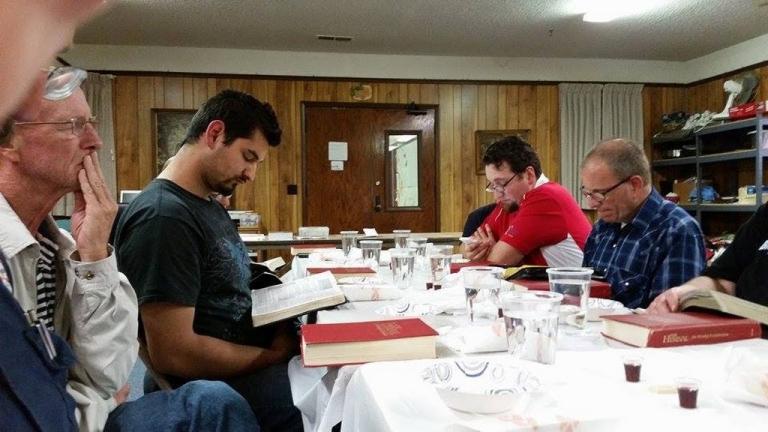
Conclusion
As for me, I like to start in the Old Testament and go from Genesis to Malachi and also from the Gospel of Matthew to Revelation, so I read it chronologically. Reading both Testaments gives me a good look at God’s plan and His will for my life. That keeps Scriptures in context (avoiding pretexts), enabling me to know whether it’s descriptive (the parting of the Red sea) or prescriptive (repent and believe). In this way, I can have God’s Word hidden in my heart, and it might even keep me from sinning (Psalm 199:11).
Article by Jack Wellman
Jack Wellman is Pastor of the Mulvane Brethren Church in Mulvane Kansas. Jack is a writer at Christian Quotes and also the Senior Writer at What Christians Want To Know whose mission is to equip, encourage, and energize Christians and to address questions about the believer’s daily walk with God and the Bible. You can follow Jack on Google Plus or check out his book Teaching Children the Gospel available on Amazon.


